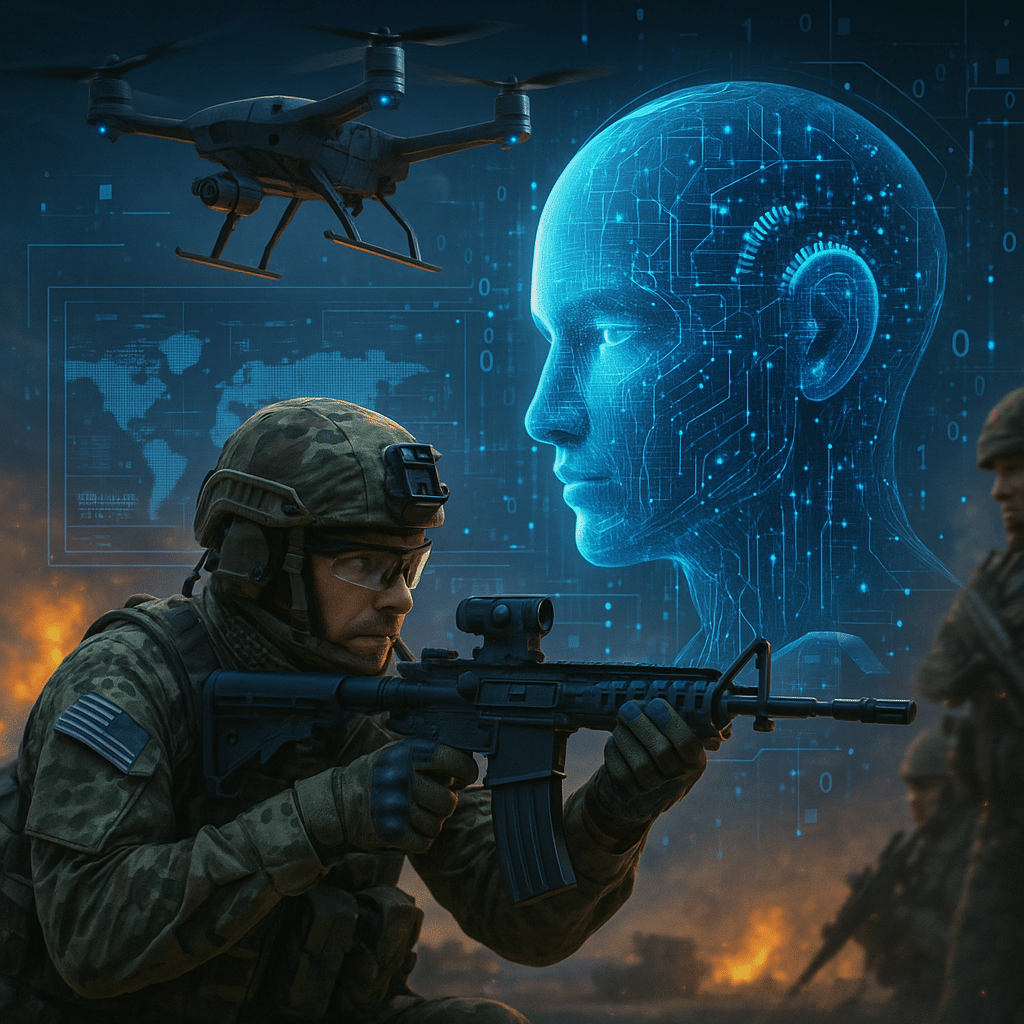Introduction
Artificial Intelligence (AI) has become a transformative force across industries—and modern warfare is no exception. From real-time surveillance to autonomous drones, AI is changing how nations defend and attack. As we enter an era of digital battlefields, AI brings both strategic advantages and serious ethical considerations.
How AI Is Used in Warfare
1. Autonomous Weapons and Drones
AI-powered drones can operate without human intervention, identifying and engaging targets with precision. These systems reduce the risk to human soldiers while increasing tactical efficiency.
2. Intelligent Surveillance
AI-driven facial recognition and behavior analysis are now part of military intelligence. Advanced algorithms help identify threats faster by scanning through vast amounts of data from satellites and CCTV footage.
3. Cybersecurity and Defense
AI helps detect and neutralize cyber threats in real time. By analyzing network patterns, it can prevent data breaches and sabotage attempts before they cause harm.
4. Decision Support Systems
Military commanders now use AI-based systems to simulate battle outcomes and make informed strategic decisions. These simulations rely on data analysis and predictive modeling.
Benefits of AI in Warfare
- Faster Decision-Making: AI processes data faster than humans, helping military units respond quickly.
- Enhanced Accuracy: Reduces collateral damage by making precise strikes.
- Reduced Human Risk: Deploys machines instead of soldiers in high-risk operations.
Ethical Concerns and Challenges
While the benefits are undeniable, AI in warfare also raises red flags:
- Lack of Accountability: Who is responsible if an autonomous weapon causes unintended harm?
- Potential for Misuse: AI technology could fall into the wrong hands or be used for unlawful surveillance.
- Moral Implications: Delegating life-and-death decisions to machines challenges humanitarian law.
Future Outlook
AI will continue to evolve, making warfare more digitized and data-driven. Nations must strike a balance between leveraging AI’s capabilities and establishing ethical boundaries. International laws and AI regulations are needed to prevent misuse and maintain global peace.
Conclusion
AI is reshaping the landscape of modern warfare, offering unprecedented capabilities and complex challenges. As this technology advances, its responsible use will be crucial in safeguarding both national security and human rights.

